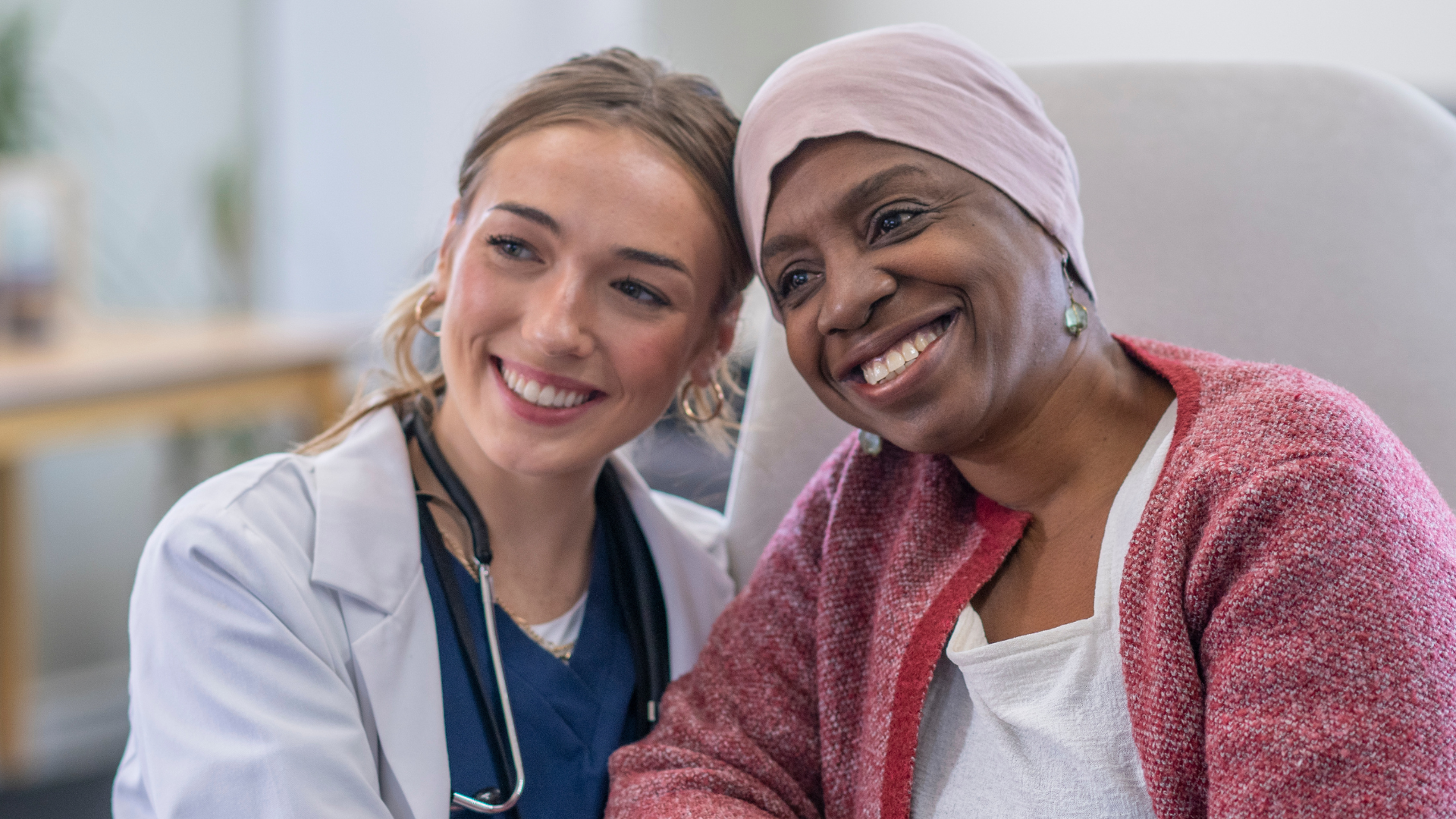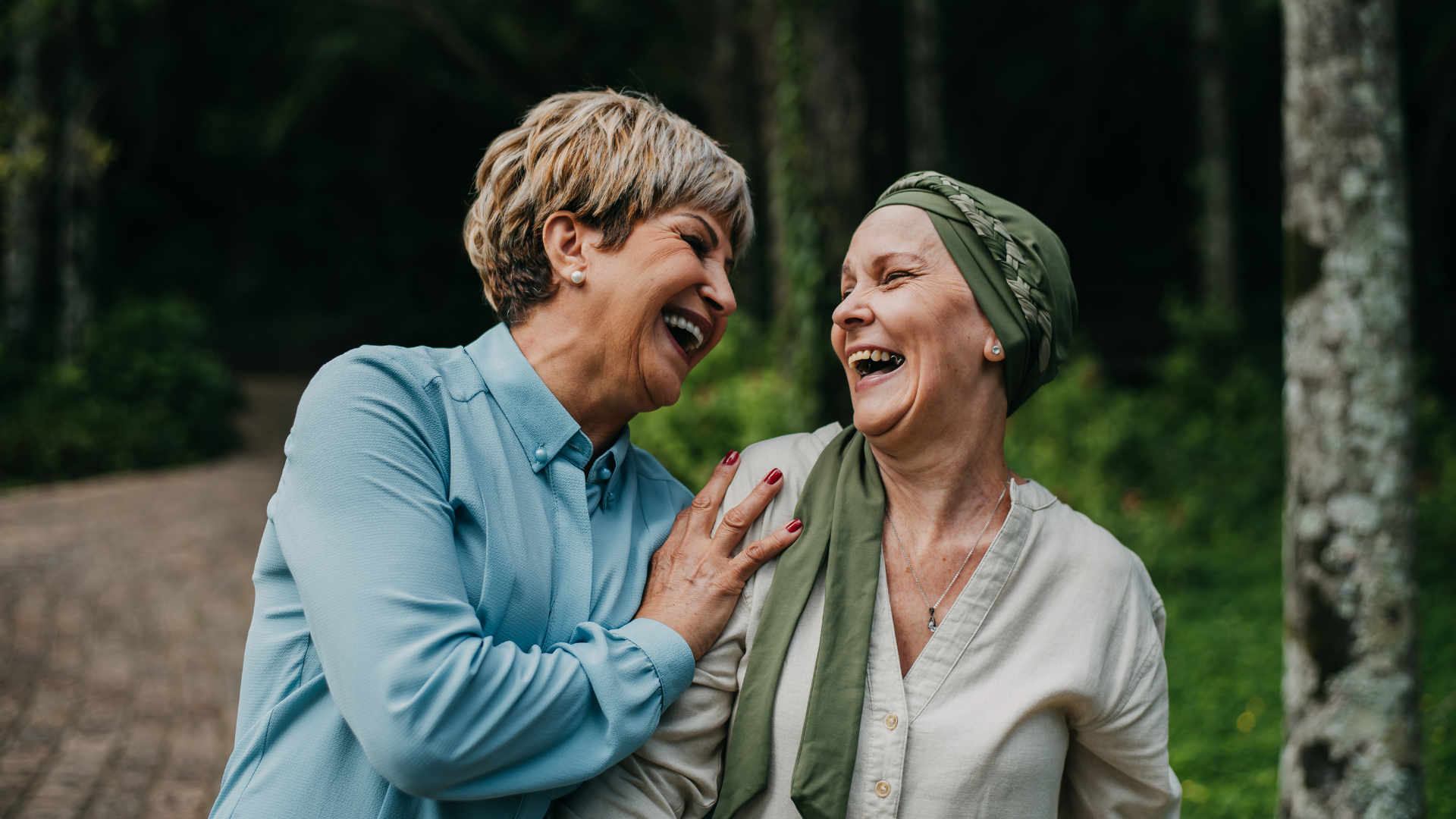
Loiselle.Lab
Sous la direction de Carmen G. Loiselle, inf., PhD, ACSS, le LoiselleLab étudie la trajectoire du cancer depuis plus de 20 ans. Nos recherches sont axées sur la manière dont des solutions innovantes, y compris la santé numérique, peuvent améliorer l’accessibilité du soutien pour toutes les personnes touchées par le cancer.
À propos de nous
Le LoiselleLab est un laboratoire de recherche en oncologie psychosociale basé à l’École des sciences infirmières Ingram de l’Université McGill et dirigé par la Dre Carmen G. Loiselle. Grâce à nos recherches et à notre engagement passionné, nous nous consacrons à comprendre le parcours de soins contre le cancer et à faire progresser le domaine de l’oncologie psychosociale. Nous cherchons particulièrement à identifier comment des solutions innovantes, y compris la santé numérique et l’intelligence artificielle, peuvent élargir l’accessibilité aux soins et soutenir toutes les personnes touchées par le cancer. Au laboratoire, nous croyons que la science naît de la collaboration, de la curiosité et de l’engagement.

Surmonter les obstacles au traitement du cancer
Bien que les interventions psychosociales traditionnelles en personne soient efficaces, leur mise en œuvre est souvent entravée par des obstacles tels que des ressources financières et humaines limitées et les symptômes des patients comme la fatigue et la douleur. Nous nous sommes engagés à développer des solutions qui répondent à ces contraintes afin de rendre plus accessible le soutien essentiel dont les patients ont besoin tout au long de leur parcours de traitement du cancer.

Étudier les effets des interventions en santé numérique
Nous étudions activement la manière dont les interventions en santé numérique (en ligne et mobile) peuvent être optimisées pour renforcer l’autonomie des patients et améliorer leur état de santé. Nos recherches portent notamment sur la sensibilisation des patients aux questions biopsychosociales essentielles en oncologie, telles que l’importance de l’évaluation de la densité osseuse dans le cadre de certains traitements du cancer du sein, qui sont indispensables à la personnalisation des soins.

Innover grâce à des systèmes de soutien sur le web
Notre équipe est à l’avant-garde des approches en ligne, qui dépassent les limites des soins de santé traditionnels. En utilisant la technologie, nous créons des solutions évolutives qui garantissent un soutien continu et souple aux patients atteints de cancer en surmontant les obstacles géographiques, temporels et physiques qui entravent souvent les méthodes de soins traditionnelles.
Nos projets de recherche
L’étude HOPE est menée dans le cadre de la Collaboration canadienne sur le cholangiocarcinome (C3), un réseau national dédié au cancer des voies biliaires. Cette étude à méthodes mixtes explore l’évolution de l’espoir et de la solitude chez les patients et les aidants, tout en recueillant leurs expériences vécues et leurs impressions sur les initiatives de C3. À ce jour, plus de 100 participants ont pris part à l’étude.
En collaboration avec l’Association Canadienne d’Oncologie Psychosociale, ce projet visait à mieux comprendre les priorités et les défis en matière de mobilisation d’organismes nationaux œuvrant dans le domaine de l’oncologie psychosociale (OPS). L’objectif consistait à recueillir des informations utiles à la conception d’une stratégie nationale commune en défense des intérêts en OPS.
Un sondage de 27 questions a été envoyé à 54 organisations, dont 30 ont répondu.
Dialogue McGill vise à améliorer l’accès des communautés anglophones du Québec aux services de santé et aux services sociaux. Ses objectifs incluent la formation linguistique en anglais, l’évaluation des programmes, le transfert de connaissances, ainsi que le recrutement et la rétention du personnel professionnel de la santé.
Depuis 2006, le Centre de langue française (CLF) de l’Université McGill et Dialogue McGill (DM) mettent en œuvre des initiatives d’apprentissage du français à l’intention des étudiants en santé et en services sociaux. Ces initiatives visent à retenir les diplômés anglophones et allophones au Québec.
Le Rossy Cancer Network a mis en place un programme de sondage sur la satisfaction des patients en traitement anticancéreux ambulatoire dans trois hôpitaux affiliés à McGill : le Centre universitaire de santé McGill, l’Hôpital général juif et le Centre hospitalier de St. Mary.
L’objectif global de cette étude est de fournir une exploration approfondie de l’expérience des patients atteints de cancer en ce qui concerne le fait d’« être connu » dans un centre de soins ambulatoires contre le cancer où des tournées d’infirmières ont été mises en place.
L’objectif global de cette étude pilote est de déterminer le potentiel de mise en œuvre d’un système électronique de dépistage de la détresse et de soutien psychosocial basé sur le volontariat pour les patients qui viennent de recevoir un diagnostic de cancer.
L’étude pilote BELONG a testé une application de santé en ligne conçue pour améliorer l’expérience des personnes atteintes de cancer. Axée sur les femmes atteintes de cancers gynécologiques, l’application a favorisé le soutien, la préparation aux soins et le sentiment de ne pas être seule, selon plus de 80 % des participantes.
Le laboratoire de la professeure Loiselle a participé à une étude internationale visant à améliorer la prévention et le dépistage du cancer du sein. Son équipe a évalué un site web destiné aux femmes afin de recueillir leurs perceptions sur l’information liée aux facteurs de risque génétiques et liés au mode de vie.
Un programme mené au Centre du cancer Segal a visé à promouvoir la santé des os chez les femmes atteintes d’un cancer du sein, particulièrement celles à risque de fragilité osseuse en raison des traitements. L’équipe de recherche de la professeure Loiselle a documenté comment des approches telles que l’éducation, l’exercice et la nutrition pouvaient être intégrées aux soins. Ces travaux ont mené à la création d’une trousse d’outils sur la santé des os, conçue pour être facilement transférable à d’autres milieux cliniques au Québec
Les transplantations de cellules souches hématopoïétiques (TCSH) sont passées d’un cadre hospitalier à un cadre ambulatoire, augmentant l’implication des proches aidants (PA). Cette étude a adapté les manuels Coping Together (CT) pour les patients ayant subi une TCSH et leurs PA, en explorant leurs perceptions et ajustements afin d’améliorer leurs stratégies de gestion durant les 100 premiers jours post-TCSH, au Memorial Sloan-Kettering Cancer Center.
“Ma Force, Notre Force” est un projet documentaire novateur qui met en lumière l’expérience complexe des jeunes adultes atteints de cancer avancé — une réalité à la fois éprouvante et porteuse de sens. Mené par Carmen Loiselle et l’équipe de l’organisme L’espoir, c’est la vie, ce projet vise à sensibiliser le public et à soutenir les services destinés à cette population souvent oubliée.
Ce projet a évalué le fonctionnement des équipes de cancérologie durant la pandémie de COVID-19 et sa période de transition. Les perceptions de plusieurs parties prenantes sur le terrain ont été recueillies entre 2021 et 2023. L’objectif était de mieux comprendre les facteurs influençant le fonctionnement optimal des équipes ainsi que leur impact sur l’expérience des patients en soins oncologiques.
Cette étude descriptive à méthode mixte a évalué les points de vue des personnes touchées par le cancer et inscrites aux programmes du Centre de bien-être cancer Hope & Cope. En explorant les bénéfices et les défis perçus à différents moments, elle a permis de mieux comprendre comment optimiser les services de soutien afin de mieux répondre aux besoins des participants.
Cette étude pilote explore la faisabilité et l’acceptabilité d’une intervention numérique conçue pour soutenir les personnes prenant des agents anticancéreux oraux (AAO). Les participants ont été recrutés dans un centre de cancérologie affilié à une université à Montréal et répartis aléatoirement pour recevoir soit l’intervention en plus des soins habituels, soit les seuls soins habituels. L’intervention comprenait plusieurs éléments multimodaux visant tous à améliorer l’engagement et à réduire la détresse liée aux symptômes. L’objectif de cette étude était de produire des données probantes sur la manière dont les outils numériques peuvent mieux aider les patients atteints de cancer à gérer leur traitement.
Cette étude exploratoire visait à mieux comprendre comment les jeunes adultes atteints d’un cancer avancé cherchent à maintenir un sentiment de contrôle face à un avenir incertain. Elle a également permis d’identifier les obstacles et les facteurs facilitant leur autonomisation dans le contexte des soins oncologiques. Les résultats ont contribué à orienter le développement de stratégies et d’interventions pour mieux soutenir ces jeunes dans leur parcours de soins.
Publications séléctionnées
Attieh, S., Kilpatrick, K., Chênevert, D., Pomey, M. P., & Loiselle, C. G. (2024). Measuring Team Functioning During the COVID-19 Pandemic: Perspectives of Cancer Care Team Members. Journal of multidisciplinary healthcare, 17, 2623–2633. https://doi.org/10.2147/JMDH.S448985
Notre équipe
Nous contacter
Si vous avez des questions concernant notre recherche ou si vous souhaitez vous renseigner sur les opportunités de collaboration, n’hésitez pas à nous contacter.
Courriel
Nos bureaux
680 rue Sherbrooke Ouest, bureau 1818, Montréal, Québec H3A 2M7









